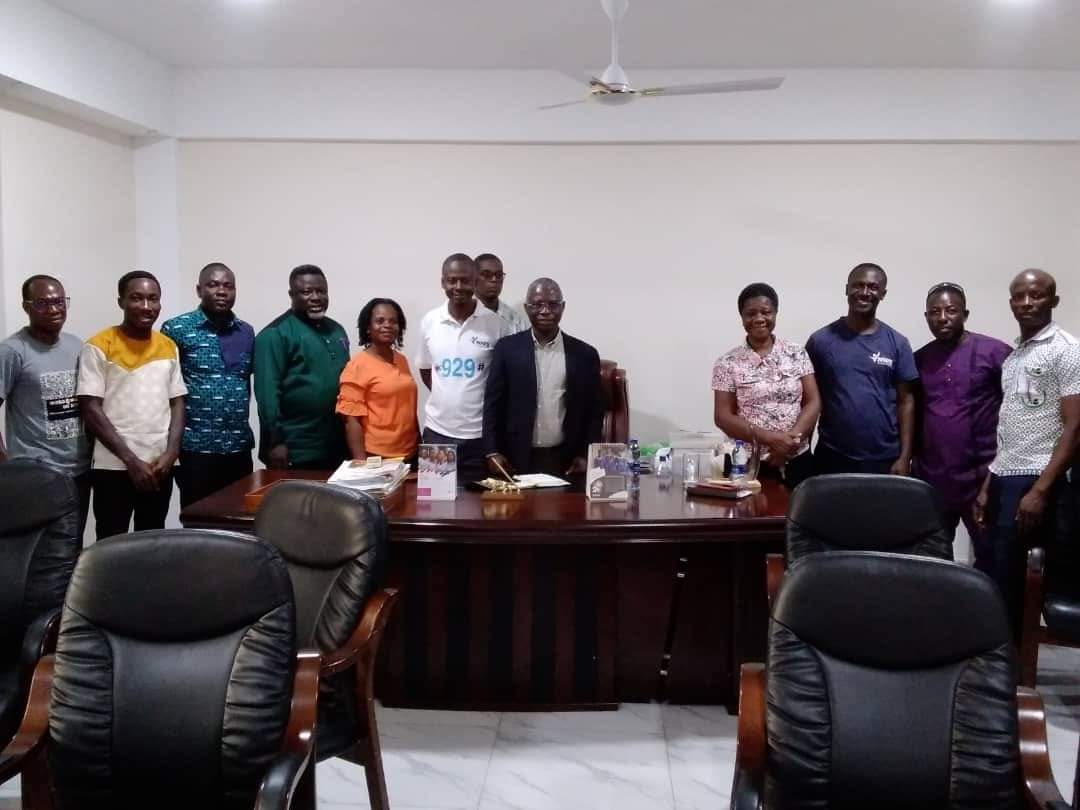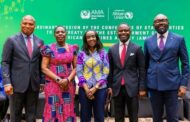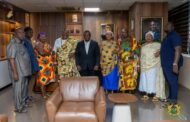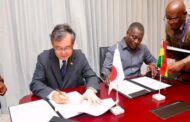Ark Development Organization, a non-profit proponent of effective collaboration with key stakeholders, organized a significant meeting at the Eastern Regional Health Directorate in Koforidua.
The project management team, working under the “Partnership for the Eradication of Skin-NTDs Project” with support from Fundación Anesvad, hosted a review meeting to assess project progress, identify constraints, and discuss the way forward.
In attendance were high-ranking officials, including the Regional Health Director, Assistant Health Director, Regional Disease Control Officer, the Regional Neglected Tropical Diseases (NTDs) Coordinator, National Health Insurance Authority (NHIA) Officers, Social Welfare Department Officers, and Environmental Health Department Officers.
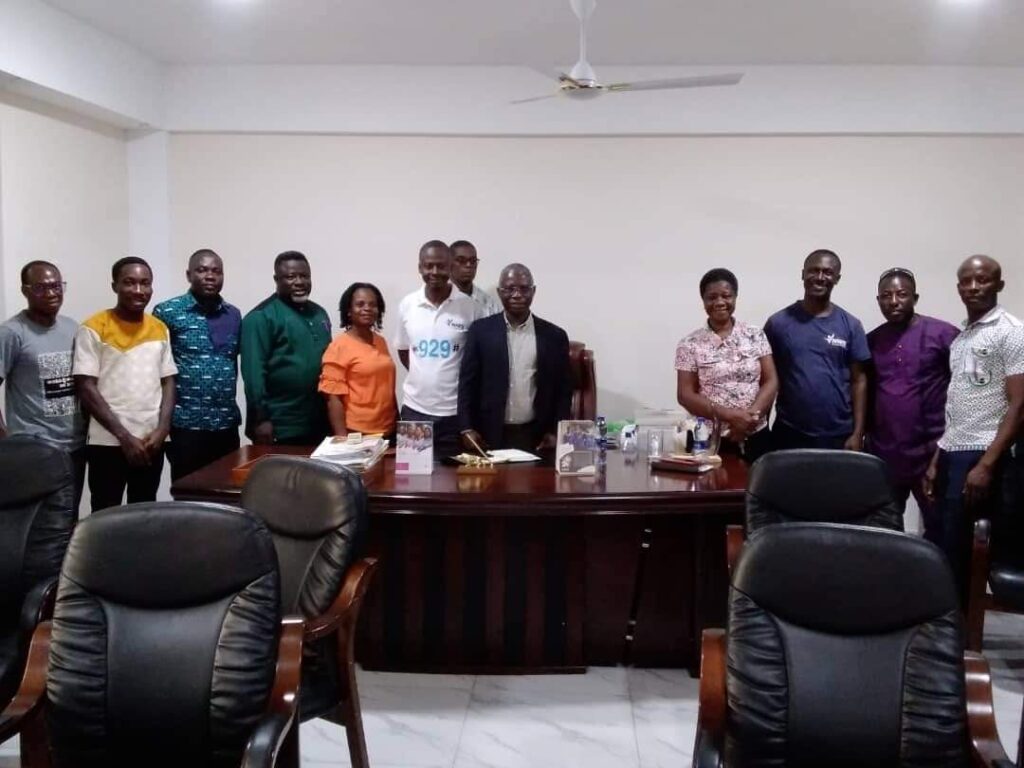
The meeting aimed to provide a comprehensive overview of the initiative’s status and address pertinent issues.
Among the key points discussed during the meeting were:
The importance of sensitization efforts aimed at preventing Skin-NTDs, particularly Lymphatic Filariasis (L.F), which is transmitted by mosquitoes. It was emphasized that people should understand that sleeping under treated mosquito nets not only prevents malaria but also offers protection against L.F.
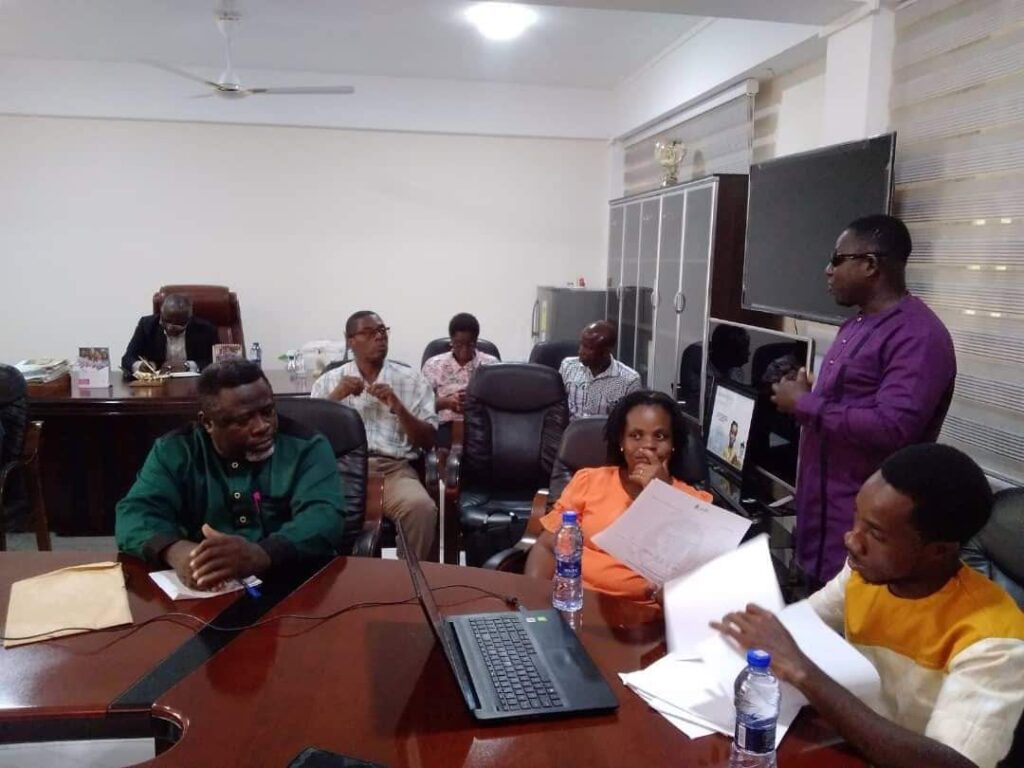
Enhancements in data collection tools, including the inclusion of a column for the most probable confirmation of suspected cases. The data recorded by volunteers should undergo interrogation and validation.
The sequence for sample collection, starting with Volunteers, moving through Facility Nurses, District Health Management Teams, and concluding at the Regional level.
The necessity of contact tracing for confirmed cases of yaws, especially among school children, to prevent further spread within educational institutions.
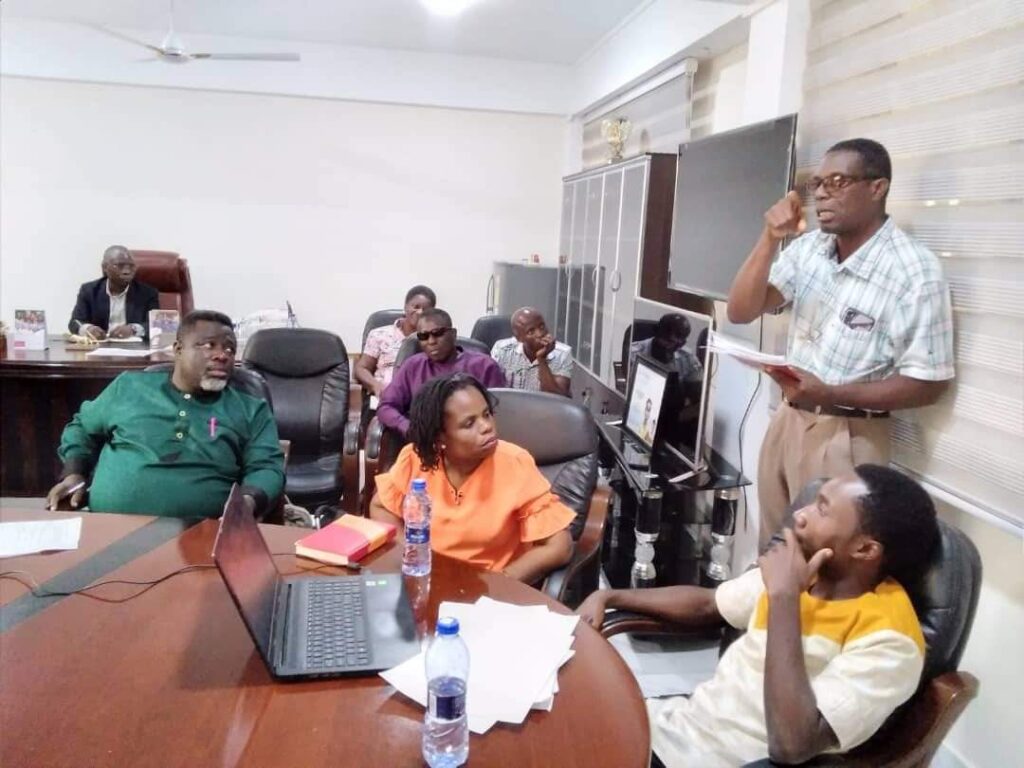
Referral of clients without National Health Insurance Scheme (NHIS) cards due to economic limitations to the Department of Social Welfare for free NHIS registration.
The importance of providing adequate training for health officials involved in the project to aid in case detection after cases are referred by volunteers.
Empowering clients in remote areas with limited access to health facilities to perform wound dressing themselves.
Noting the limitations of NHIS coverage, particularly for high-level facilities, and the need for stronger sensitization on stigmatization.
The finally, advocating for a robust collaboration between volunteers and health workers.
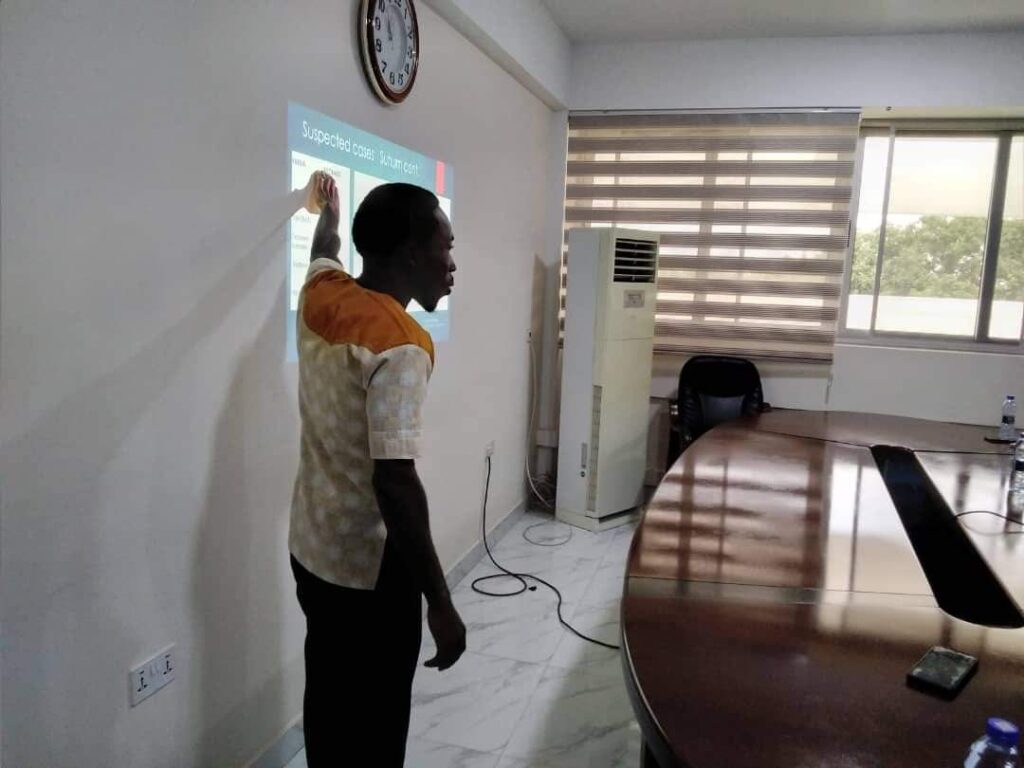
The meeting served as a platform for stakeholders to address crucial aspects of the “Partnership for the Eradication of Skin-NTDs Project” and to align their efforts toward the successful achievement of its objectives.
Executive Director of Ark Development Organization,Emmanuel Kwarfo Mintah said the project, supported by Fundación Anesvad, aims to combat Skin Neglected Tropical Diseases in often-overlooked areas, emphasizing the importance of inclusivity and collaboration.
He said the discussions underscored the commitment to improving healthcare in the region and creating a lasting impact in the fight against NTDs.
Source: Mybrytfmonline.com/Obed Ansah



